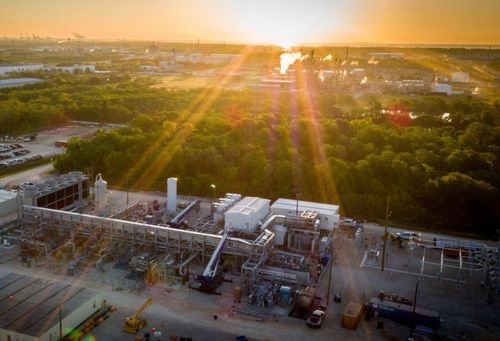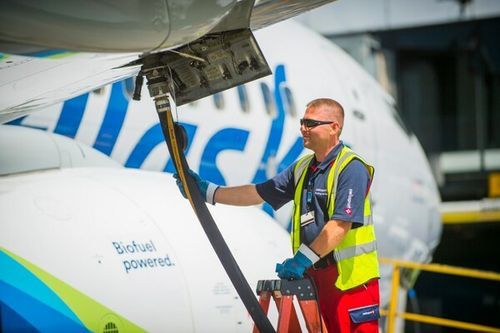Alaska Airlines has reached agreement with Shell Aviation to expand the sustainable aviation fuel (SAF) market beyond a standard fuel supply agreement.
The cross-industry collaboration brings together a world-class fuel supply chain and the fifth-largest domestic carrier to procure and use sustainable fuel, while working together to define and tackle what it will take to advance SAF technology, development, infrastructure and investment, according to a news release.
“Alaska Airlines has set our course to net zero by 2040 and sustainable aviation fuels represent the greatest near-term opportunity to make a step-level change on that journey,” said Diana Birkett Rakow, senior vice president for public affairs and sustainability at Alaska. “That’s why we’ve pioneered SAF technologies for more than a decade. But we can’t scale the market alone. We’re excited to take this next step in the journey with Shell, to leverage their deep knowledge of the energy industry, its infrastructure requirements and supply chain to make lower lifecycle carbon SAF more widely available for the future.”
Details of the agreement include commitments to deepen understanding of the technology, infrastructure, carbon accounting systems and public policy support needed to bring SAF to more markets, in greater quantities and at a more sustainable long-term cost. The companies will put particular focus on enabling supply to the West Coast and alleviating fueling infrastructure challenges in the Pacific Northwest. Shell Aviation will also supply up to 10 million gallons of neat SAF to Alaska Airlines at their hub in Los Angeles.
“We’re excited to expand our strong relationship with Alaska and amplify our efforts to help decarbonize aviation through SAF supply on the West Coast and in the Pacific Northwest,” said Jan Toschka, president of Shell Aviation. “We need support from the entire ecosystem to build a sustainable future for aviation. This deep level of collaboration will help us put the technologies and supply chain in place to advance the industry.”
Both Alaska Airlines and Shell Aviation share an ambition to help scale the SAF market by concurrently addressing cost and volume through multiple strategies to grow availability and commercial viability of SAF.
“With Shell’s world-class fuel supply chain and deep technical knowledge, we’re aiming to transform West Coast fuel supply,” said Ann Ardizzone, vice president of strategic sourcing and supply chain management at Alaska Airlines. “By leveraging the fuel infrastructure expertise of a major fuel producer, we can advance SAF access in more markets, accelerating the market scale of SAF to reach our environmental goals.”
SAF is a safe, certified drop-in fuel that meets the jet fuel standards to reduce carbon emissions by as much as 80% of lifecycle emissions.








